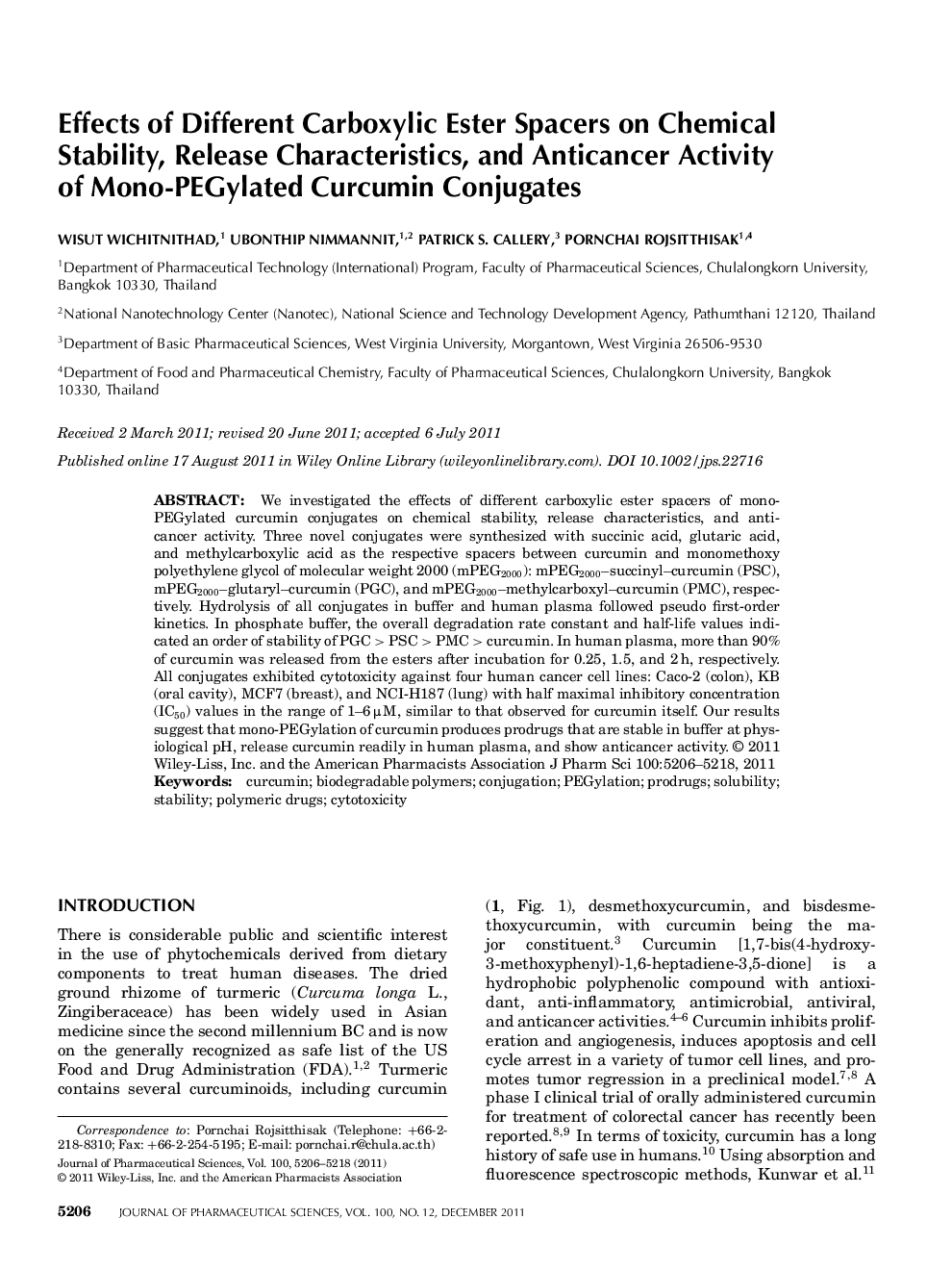| Article ID | Journal | Published Year | Pages | File Type |
|---|---|---|---|---|
| 2486141 | Journal of Pharmaceutical Sciences | 2011 | 13 Pages |
Abstract
We investigated the effects of different carboxylic ester spacers of monoâPEGylated curcumin conjugates on chemical stability, release characteristics, and anticancer activity. Three novel conjugates were synthesized with succinic acid, glutaric acid, and methylcarboxylic acid as the respective spacers between curcumin and monomethoxy polyethylene glycol of molecular weight 2000 (mPEG2000): mPEG2000-succinyl-curcumin (PSC), mPEG2000-glutaryl-curcumin (PGC), and mPEG2000-methylcarboxyl-curcumin (PMC), respectively. Hydrolysis of all conjugates in buffer and human plasma followed pseudo firstâorder kinetics. In phosphate buffer, the overall degradation rate constant and halfâlife values indicated an order of stability of PGC > PSC > PMC > curcumin. In human plasma, more than 90% of curcumin was released from the esters after incubation for 0.25, 1.5, and 2 h, respectively. All conjugates exhibited cytotoxicity against four human cancer cell lines: Cacoâ2 (colon), KB (oral cavity), MCF7 (breast), and NCIâH187 (lung) with half maximal inhibitory concentration (IC50) values in the range of 1-6 µM, similar to that observed for curcumin itself. Our results suggest that monoâPEGylation of curcumin produces prodrugs that are stable in buffer at physiological pH, release curcumin readily in human plasma, and show anticancer activity.
Keywords
Related Topics
Health Sciences
Pharmacology, Toxicology and Pharmaceutical Science
Drug Discovery
Authors
Wisut Wichitnithad, Ubonthip Nimmannit, Patrick S. Callery, Pornchai Rojsitthisak,
